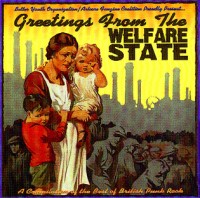 The corruption in US regulatory agencies has reached a new milestone as the FDA gave URL Pharma the sole right to sell Colcrys (colchicine), a drug used to treat gout for thousands of years. Now the price of the drug has increased from $34.83 for 60 tablets to $306.86 for 60 tablets. This problem, exposed by CBS 60 Minutes, exemplifies the ever more urgent need for US regulatory agency reform that I wrote about in April 2010. We are heading down a road that can lead the FDA to authorize one company to sell all drinking water.
The corruption in US regulatory agencies has reached a new milestone as the FDA gave URL Pharma the sole right to sell Colcrys (colchicine), a drug used to treat gout for thousands of years. Now the price of the drug has increased from $34.83 for 60 tablets to $306.86 for 60 tablets. This problem, exposed by CBS 60 Minutes, exemplifies the ever more urgent need for US regulatory agency reform that I wrote about in April 2010. We are heading down a road that can lead the FDA to authorize one company to sell all drinking water.
This blatant conflict of interest between a corporation and the agency supposed to regulate it has turned the FDA into a pipeline for favors to friends that turns US citizens into their unwitting slaves. Ending such conflicts of interest created by regulatory agencies can greatly reduce the cost of health care in the United States, in this case nearly 10 times. Ironically, many of the proposed “solutions” provided in Obamacare rely on creating similar agencies lacking proper checks and balances that will only increase prices and divide the spoils of such a corrupt system among a few more foxes. Continue reading →









